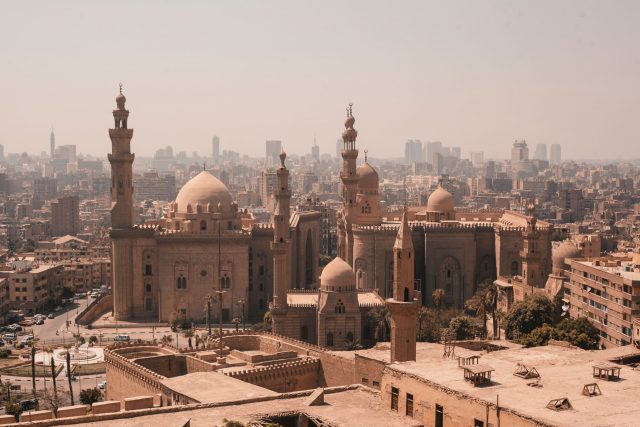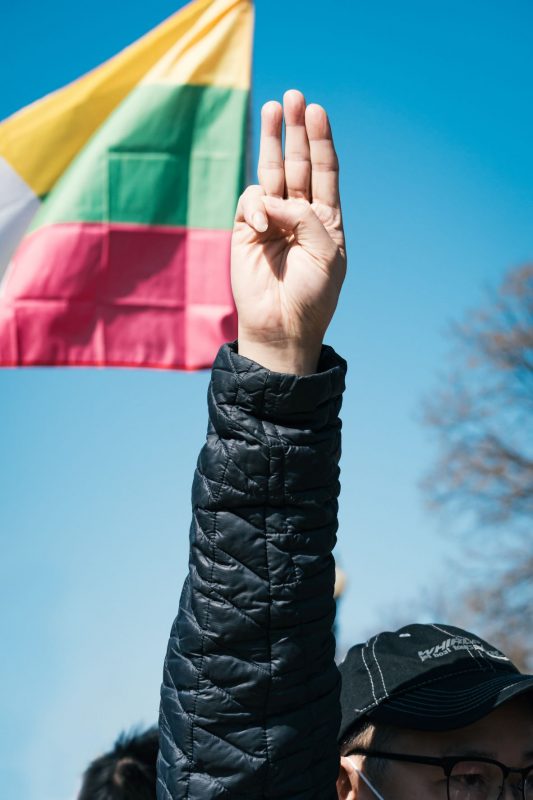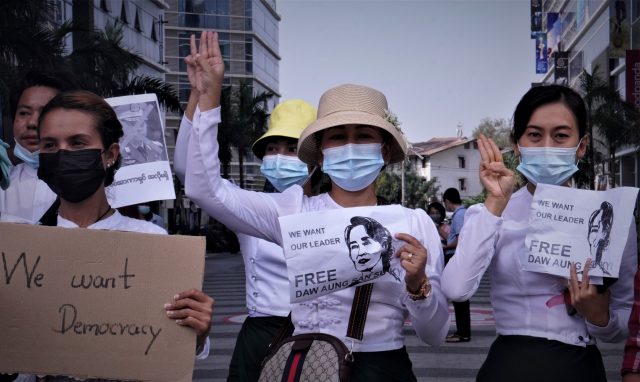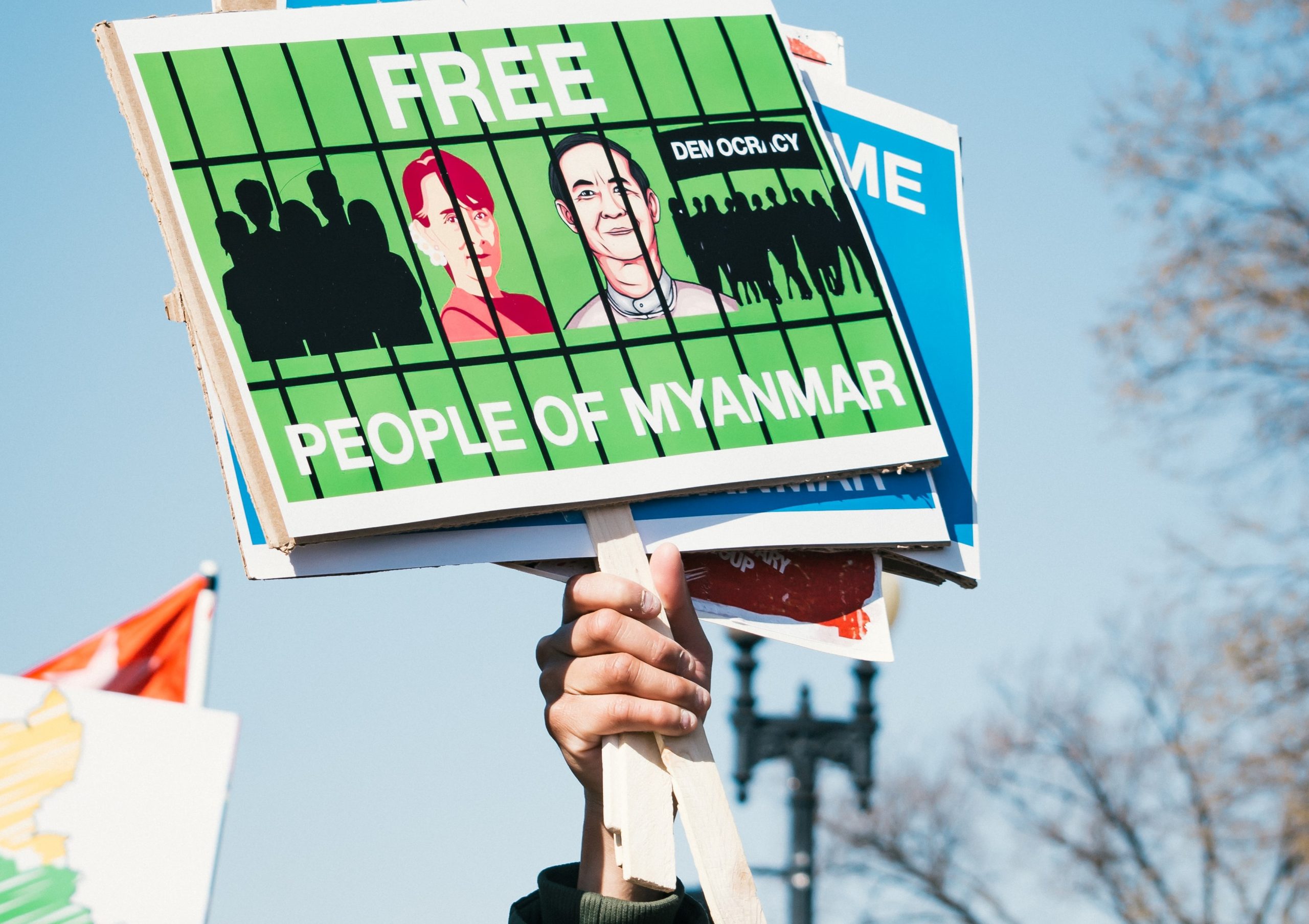International teaching is an excellent opportunity to live in another country, meet new people and immerse yourself in a new culture. But what do you do when things don’t turn out quite as expected? Political instability is a day-to-day reality in many countries which, from time to time leads to political and civil unrest. When this happens, how do international schools support their local and expatriate teachers, and what is the role of the international teacher? Below we share stories from two international teachers who found themselves in very different situations.
Egypt 2011
Background
Less than two weeks after anti-government protests in Tunisia resulted in its president fleeing to Saudi Arabia, “on January 25, 2011, thousands of Egyptians marched in Cairo, Alexandria and other cities, demanding the departure of President Hosni Mubarak, who had been in power for 30 years” (What is the Arab Spring and how did it start?). The protests lasted for 18 days and were well-documented by international media. Mubarak was forced to resign in February and, 5000 kilometres away, Laura Rigney, now Teacher Horizons’ Director of School Services, received information about an opportunity to teach maths at Cairo English School, part of the ESOL Education group.
Laura and her partner, who was also a teacher, met the head of the school in London, who reassured them that the day-to-day situation for expats in Cairo was not as bad as it appeared to be in the media, and that the ESOL group were very supportive of their staff in-country. The role appealed to Laura because of the great professional development opportunities, the chance to get invaluable IB experience and be part of a growing and developing school, as well as being offered a position of additional responsibility. Despite the media spotlight on Cairo, Laura and her partner accepted the positions offered at Cairo English School in March and spoke highly of the school’s onboarding process before they arrived, including a Facebook group for new starters which allowed them to meet each other before arriving in Egypt.

How did the school support its staff and students?
Laura says that, upon arrival in Cairo, they felt well looked after by the school, and don’t have any outstanding memories of the political unrest at that time. Teachers were advised not to discuss religion or politics as it was such a polarising topic and, although some students did try to engage their teachers in this type of discussion, they did their best to remain neutral and not express an opinion. Laura describes her first year in the country as quite uneventful, but Egypt was gearing up for its first democratic elections in 2012. The election was big news, and Mohamed Morsi from the Muslim Brotherhood was elected in June. From this time, Islamists monopolized the political scene, and power was very much concentrated in the hands of the Muslim Brotherhood. In response, more protests started and a curfew was put in place. Laura says that the protests were mostly localized and largely did not affect the areas where expats lived, however, the school she worked at was forced to close for three weeks. During this period of time, CES continued to support their students by providing online learning, with teachers uploading work daily. The school was very good at communicating with staff and established a “phone tree” in order to ensure that important information could be disseminated quickly to everyone. Only a year later, Morsi was ousted by the military on 3 July 2013, and Laura says that life continued much as normal.
Laura and her partner renewed their initial contract at CES for an extra year in spite of the civil unrest in the country and she says that, overall, the experience made her a more resilient teacher and person.
Ten years later, in Myanmar, a very different story unfolded.
Myanmar 2021
Background
Myanmar is a country in Southeast Asia, bordered by Bangladesh and India to the West, China to the north and Laos and Thailand to the East. It has a population of over 54 million people, made up of 135 different ethnic groups, many of which have their own language. It was a British Colony from 1824 until 1948 and, when the country gained independence from the British Embassy, it was one of the strongest economies in Asia. From then until 2011 the country was under military rule and was closed to the outside world for almost 50 years. Throughout 1988 the people of Myanmar protested against the government, culminating on 8 August 1988 when the military’s reaction to pro-democracy protests killed more than 5000 people. In 2007, in response to the government removing fuel subsidies, monks led thousands of Myanmar people in protests that became known as the Saffron Revolution. Once again the military responded violently, killing tens of people. However, from 2011, things seemed to start to change for the better, and the country began to open up to the outside world. In 2015 the National League for Democracy (NLD) won a landslide victory in the general election and Aung San Suu Kyi became the country’s state counsellor.

But then the Covid-19 pandemic began. On the 17th of March 2020 Covid, the British Embassy advised British nationals to leave the country, stating that the virus was “expected to put significant pressure on Myanmar’s medical facilities, and they may not be able to offer routine care. There [was] also a risk that air routes out of Myanmar could be cancelled without notice” (Facebook, UK in Myanmar, 17 March). Many expatriates from other countries also left and, following this, the country closed its borders.
On November 8th 2020 the National League for Democracy (NLD) won its second election, however the military-aligned Union Solidarity and Development Party (USDP) contested the results, alleging voter fraud and demanded a recount. The NLD denied the claims and the votes were not recounted.
On February 1st 2021, parliament was scheduled to hold its first session when the military surrounded the government buildings in Nay Pyi Taw, detained key members of the NLD including Aung San Suu Kyi, and announced a one-year state of emergency. They shut down television broadcasts, cancelled flights, closed banks and restricted communications by shutting down telephone and internet providers.
We spoke with James (his name has been changed to protect his identity) who was teaching students at an international school in Yangon at the time of the military takeover. At this time, lessons had been virtual since March 2020 due to Covid-19.
What was the reaction of the school community?
James says that the students he taught in the secondary school were shocked and scared because they had heard stories about the military’s rule from 1962 until 2011 – a time when independent newspapers were banned, communications were monitored and people “disappeared” overnight. Having enjoyed only six years of long-awaited democracy, many local staff and older students were devastated to return to military rule, and angry that the military had ignored the results of the 2020 election. In the days that followed, peaceful protests were organised and attended by thousands of civilians, including many local staff and some students.

How did the school support its staff and students?
In the days after the military seized power in Myanmar, James says that the school advised staff to avoid wearing anything red, as this is the colour of the NLD and could be seen as supporting the party. They were also advised not to publicly express their political views on the events taking place, as any comment that could be construed as anti-military could result in the school being closed, thus preventing teachers from being able to support students. It was thought that the best way to do this was to continue to provide students with their familiar school routine while so much around them was in turmoil. Teachers did this by continuing with timetabled virtual lessons and homework, while being flexible with attendance and deadlines if students were not able to access the internet or did not feel emotionally able to participate. While many of the early years students at the school were not really aware that anything was different, James told us that teachers started to worry that some older students would potentially be traumatised by the events taking place and they felt ill-equipped to help them. The school arranged for an educational psychologist to speak to secondary school staff about how they could best support their students. He emphasised that it was important to allow students a safe space to talk about their feelings, and that teachers could provide this without needing to suggest solutions or have all the answers. He also advised teachers to speak to students about limiting their exposure to news websites and social media as well as reminding them about coping strategies they had already practised, such as breathing techniques. Many teachers adapted their standard virtual lesson model to include extended time at the start of lessons to check in with students about their wellbeing. Any students of concern were then referred to the school counsellor.
How did expat teachers feel living in Yangon at this time?
James told us that the initial reaction of many of the expat teachers he worked with in Yangon was fear and panic. They were aware of Myanmar’s history under military rule, and had heard about the brutal treatment of protestors during the 1988 demonstrations and the 2007 Saffron Revolution, and were scared that something similar would happen again. Unpredictable access to wifi and mobile internet exacerbated the situation, as they worried that they could be cut off at any time, leaving them unable to communicate with anybody within or outside of the country. The military takeover of power was followed by curfews in Yangon, and expat staff were scared to leave the neighbourhoods in which they lived, turning everyday activities like grocery shopping into stressful experiences. In addition, there were daily limits on cash withdrawals, and some ATMs did not contain any cash, forcing staff to travel to withdraw money, or risk not having enough for groceries or emergencies. Borders with neighbouring countries were still closed and flights out of the country were limited due to Covid-19. Although the days immediately after the 1st of February were peaceful, violence in the country escalated and, on the 12th of March the British Embassy advised UK citizens to leave Myanmar. Most staff from James’s school returned to their home countries, feeling incredibly sad to leave the country that had been their adopted home and the wonderful local staff with whom they had worked, not knowing when they would be able to return.
Political and civil unrest in countries is often front page international news and, while it’s important to read up on what’s going on in a country you might like to live and work in, the media doesn’t always paint an accurate picture of what your day-to-day life as an expat may be there. Consider broadening your research by speaking to people who already work at the school or live in the country and also checking the UK FCO travel advice.
List of references
Al Jazeera. “Myanmar: Timeline of a Fragile Democracy.” Al Jazeera, 1 Feb. 2021, www.aljazeera.com/news/2021/2/1/myanmar-military-rule-to-fragile-democracy.
Al Jazeera. “What Is the Arab Spring, and How Did It Start?” Al Jazeera, 17 Dec. 2020, www.aljazeera.com/news/2020/12/17/what-is-the-arab-spring-and-how-did-it-start.
Cuddy, Alice. “Myanmar Coup: What Is Happening and Why?” BBC News, BBC, 1 Apr. 2021, www.bbc.com/news/world-asia-55902070.
Goldman, Russell. “Myanmar’s Coup and Violence, Explained.” The New York Times, 1 Feb. 2021, www.nytimes.com/article/myanmar-news-protests-coup.html.
Meixler, Eli. “How a Failed Democracy Uprising Set the Stage for Myanmar’s Future.” Time, 8 Aug. 2018, time.com/5360637/myanmar-8888-uprising-30-anniversary-democracy/.
“Myanmar Profile – Timeline.” BBC News, BBC, 3 Sept. 2018, www.bbc.com/news/world-asia-pacific-12992883.
UK in Myanmar. UK advises British nationals in Myanmar to leave the country. Facebook, 17 Mar. 2020, 12:27 pm, https://www.facebook.com/ukinmyanmar/posts/10157143715732865. Accessed 18 Aug. 2021.




